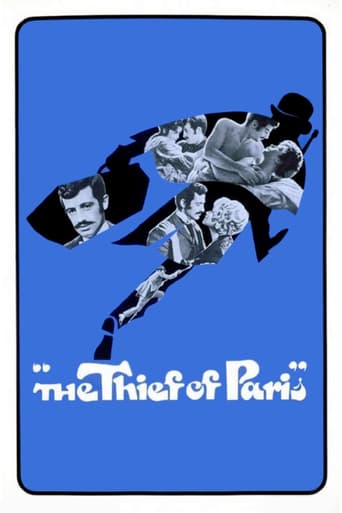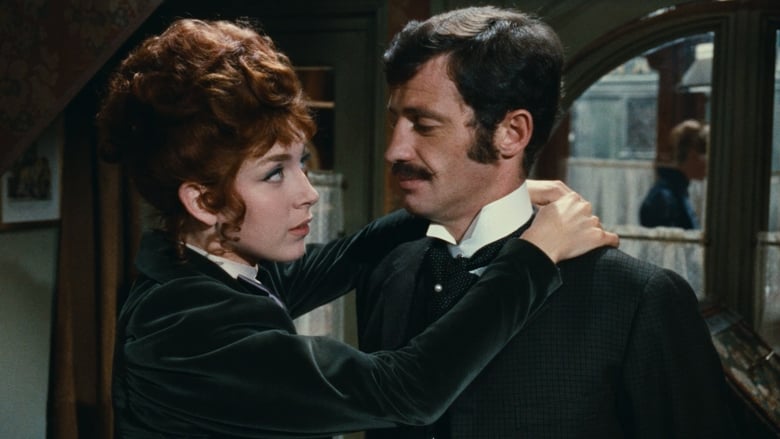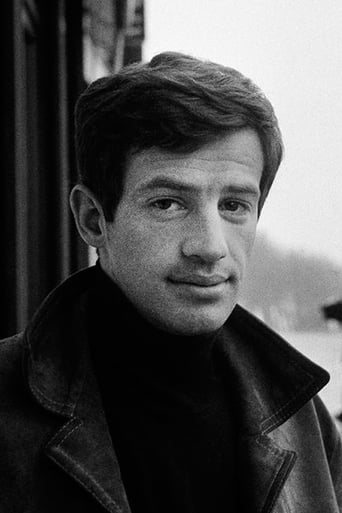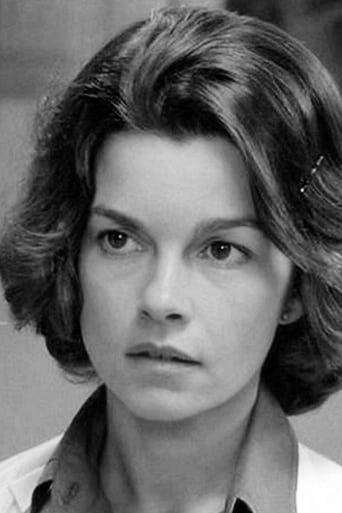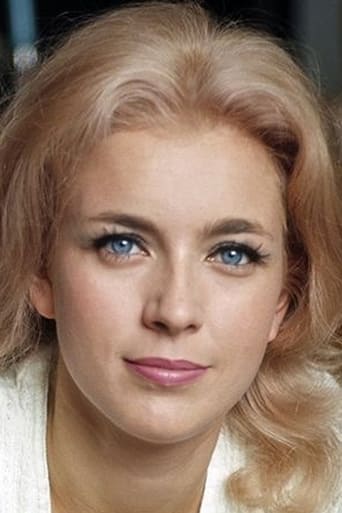The Thief of Paris (1967)
In Paris around 1900, Georges Randal is brought up by his wealthy uncle, who steals his inheritance. Georges hopes to marry his cousin Charlotte, but his uncle arranges for her to marry a rich neighbour. As an act of revenge, Georges steals the fiance's family jewels, and enjoys the experience so much that he embarks upon a life-time of burglary.
Watch Trailer
Free Trial Channels
Cast


Reviews
It isn't all that great, actually. Really cheesy and very predicable of how certain scenes are gonna turn play out. However, I guess that's the charm of it all, because I would consider this one of my guilty pleasures.
It really made me laugh, but for some moments I was tearing up because I could relate so much.
Not sure how, but this is easily one of the best movies all summer. Multiple levels of funny, never takes itself seriously, super colorful, and creative.
One of the best movies of the year! Incredible from the beginning to the end.
THE THIEF OF Paris certainly is not Louis Malle's most illustrious work, pales in comparison with classics like ELEVATOR TO THE GALLOWS (1958, 8/10), THE FIRE WITHIN (1963, 9/10), LACOMBE, LUCIEN (1974, 8/10), or even his Hollywood legacies as Atlantic CITY (1980, 7/10) and VANYA ON 42ND STREET (1994, 7/10), but it might be his brightest and the most nihilistic. In Malle's film, burglary is not a disgrace profession at all, and Georges Randal (Belmond) is a very promising one, with his bourgeois upbringing and extraordinary composure. His first go is an act of revenge to sabotage his cousin Charlotte's (Bujold) arranged marriage organized by his rapacious uncle Urbain (Lude), who raises him up but also appropriates properties of George's deceased parents. So he has to leave, accidentally joined by two habitual thieves, the priest Félix (Guiomar) and Roger-La-Honte (Le Person). Together, Georges marches on successfully and gets flirty with several women, Broussaille (Jobert), Roger's brothel-running sister in London; Ida (Fabian), one of her girls; Renée (Sarcey), the wife of his college mate Mouratet (Crouzet) and Genevière (Dubois), an unhappily married wife, who also wants to rob her husband blind. Most of the time, the film embraces a nonchalant casualness in the supposedly highly- surreptitious activities, minutely showing viewers the details of breaking-in a villa, prising open a safe box or using caustic acid, meanwhile bourgeois class again is under the lash of Malle's wielding, the ultimate shame is Urbain on his death bed, he has to watch Georges feasibly falsify his will and Charlotte utter that she has no sympathy to him at all. Career hazard matters, particular for thieves, but Georges is the kind (one we are all too familiar with) that cannot stop even he patently comprehends the aftermath, because it is the danger is beckoning them to act, to induce the thrill and fulfillment his life needs, so in the final act, Malle mischievously lures us into a paranoiac game reflected from George's mind, then calmly ends the film, an anticlimax fits this generally unexciting adventure. There are nothing too thrilling for the cast to do either, Belmondo might not be the romantic type, but as rakish as he could be, Guiomar liberates some deadpan seriousness of juggling his holy vocation with mundane misdeeds. Belles are all over the maps (Bujold, Sarcey, Dubois, Fabian, even Lafont in her small part as a very French maid), but never arouse too much frisson in their auxiliary functions, really a pity.
Georges Randal, the rogue bandit that terrorized rich people in France, as well as in Belgium and England, was a man cheated from his own inheritance by an uncle that decided to concentrate in marrying Georges' own cousin, Charlotte, giving her a dowry that would guarantee her a good marriage. Georges began a spree of thefts that made him one of the most sought after bandits of the time. One thing that distinguished Randal was the ruthlessness in which he attacked the treasured objects of its owners. Georges loved Charlotte, but it their union was not going to happen because the uncle Urbain, saw to it Georges did not have a chance. Georges allied himself to a catholic priest who knew where to strike, passing himself for a saintly man of the cloth. They fooled everybody with their wit and resoluteness.Based on the novel by George Darien, Louis Malle and his collaborator Jean-Claude Carriere took the task to bring the novel to the screen, adapting it to fit the style for which the director was famous for. They opened the action, although the only fault is that it would have made a better picture if it would have been trimmed a bit because there are things that are repeated that should have been eliminated.In Jean-Paul Belmondo they found the ideal actor to carry the film. The actor, at the heart of his popularity, did what he could with his Randal, although there are times when he is bogged down by the screenplay. Genevieve Bujold, makes a ravishing creature to look, although she is only briefly at the beginning and at the end. Julien Giomar makes a valuable contribution as the Abbe La Margelle, the rogue priest behind some of the capers performed by Randal. Marie Dubois, Christian Lude, Francoise Fabian, the wonderful Marlene Jobert, add luster to the supporting cast. Bernadette Lafont, an excellent actress appears only briefly in the film.
A pendant piece to VIVA MARIA. Louis Malle certainly, unlike some other fifties hipsters but also along with some other fifties hipsters, knew that something was happening in the sixties but didn't quite know what it was. It was, of course, sex, drugs and rock 'n roll - thousands of people in the street- the whole anti-establishment thing. Malle knew this and he didn't know this. He knew this instinctively but not specifically. In LE VOLEUR he presents a story of a young man, who, upon completing his education and military service, is cheated out of his inheritance and thwarted in love by the greed of the older generation disguising its self interest in pious social formalities. He almost accidentally discovers his talent for burglary and decides that it is his life's calling. This is a trope familiar to French existentialism especially in the films of Bresson and Melville. Belmondo, as the young man, Georges Randal, decides that he is going to attack the smug bourgeoisie one villa at a time. His sex life was what could be described as extremely contemporary. He lives on the boarders of respectable society. A life on the edge if you will. He shares his values with all sorts of nefarious characters in a sort of underground movement. While some have plans to turn the movement into something like a concrete political organization Belmondo prefers to keep it on a personal and individual level. The chief mover behind the politicizing of the movement is shot down after a political speech made by a reactionary politician. Even after achieving an enviable financial security Belmondo continues with his chosen profession, dedicated to the implication that it continues his never ending war against a hypocritical and selfish bourgeois society. A very sixties concept except that LE VOLEUR is a period picture, set in La Belle Epoch, the decades before the turn of the last century.VIVA MARIA is also a period picture but more overtly about revolution. Malle certainly had a feeling for the zeitgeist but was, as something of a bourgeois himself, distancing himself from identifying too fully with revolutionary politics as say someone like Regis Debray, a man of Malle's class who fought with Che Guevara in Bolivia. Certainly as all of the aspects of the cultural revolution of the late sixties came into sharper focus Malle, like the Belmondo character, avoided direct participation or indeed comment upon either the situation or any organized dissidence, preferring to make his statement by going within. His subsequent films included documentaries on India and fiction films dealing with incest in Vichy (LE Soufflé AU COEUR) and a collaborationist youth during the war (LACOMBE LUCIAN). He was to abandon France ten years after LE VOLEUR and made films in America before returning once again, ten years after, to France and a film about the ethics and morality of wartime collaboration (AU REVOIR LES ENFANTS) and, more pointedly, May '68 (MILOU EN MAI). But from VIVA MARIA and LE VOULEUR it was a long time in between laughs.LE VOLEUR is commendable, above all else, for it's single minded purpose, reflected in the dedication to his vocation by Belmondo. No crappy cinematic tricks. Guys who want to retire do so even after one last job, men who walk into the frame do not turn out to be undercover anythings, coincidences and ironies do not abound at the touch of a screenwriters whim or sloth. The sequence with Charles Denner, who is superb, is a highlight of the film. Geneviève Bujold has never looked more beautiful than in this film. If LE VOLEUR has one fault, it is that there are too many beautiful women in the film, a fault more revealing about the way times and standards have changed, than about Mr. Malle.LE VOLEUR, along with VIVA MARIA are perfect examples of what the Nouvelle Vague matured into, sort of its middle age, a strong combination of spirit, skill and generous budgets. A rare film to catch but entertaining, exciting, sexy, fun and intellectually stimulating. Highly recommended.
Just saw this forgotten gem by Louis Malle today on Starz. I absolutely loved it. I admit I have a huge bias towards movies about thieves: the artistry of their trade fascinates me (and explains why I can't get enough of playing "Thief" the computer game series).Nevertheless, this was an engrossing turn of the century period piece which is filled with brilliant, subtle characterizations of extremely interesting and complex characters. It's exciting without needing to be fast paced and it doesn't sacrifice depth of emotion (which is repressed but fully present under the surface as these characters must constantly re-evaluate their involvement in their chosen lifestyles).The film is beautifully structured so that by the end of it we, who have been voyeuristically caught up in the romance of suave criminals, must, like them, take stock of what has been lost.

